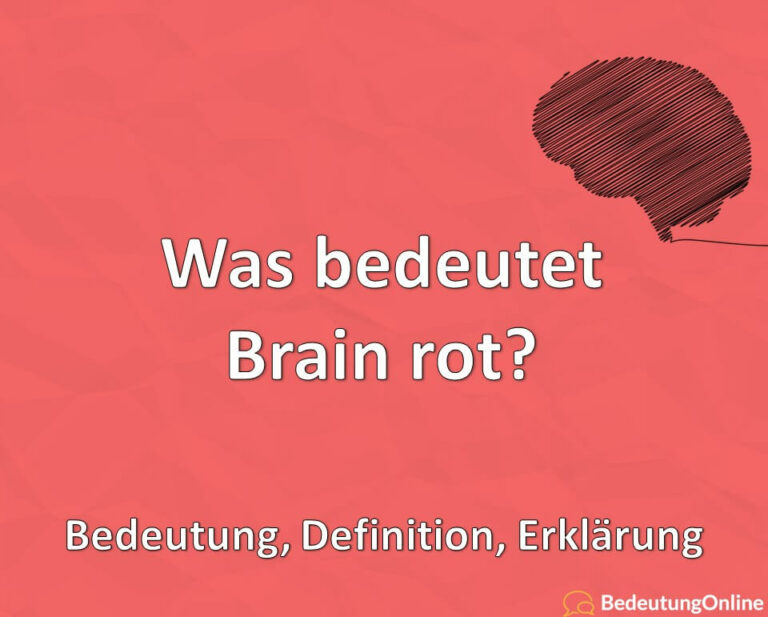Decoding "Brain Rot": Meaning & Origins | Internet Slang Explained
Ever felt your thoughts trapped in a digital echo chamber, repeating phrases, memes, and trends until they feel as real as your own memories? Welcome to the world of "brainrot," a phenomenon that's reshaping how we communicate, think, and perceive the world around us.
The term "brainrot" has emerged as a prominent piece of internet lexicon, specifically after being named the 2024 word of the year by Oxford University Press. However, its rise wasn't immediate acceptance. Initially, it sparked confusion among many, leading to a surge of search queries as people scrambled to understand its meaning. Yet, for others, particularly those immersed in online culture, it was a familiar concept, a description of a shared experience. Brainrot, often written as "brain rot," has become synonymous with mental fatigue and cognitive overload. This condition is frequently tied to intense online engagement with specific topics, communities, or content. It's akin to an obsessive fixation, where one's thoughts and behaviours get consumed by a certain topic, concept, person, interest, or activity. This phenomenon isn't about literal brain decay. It's a more abstract concept reflecting how extensive internet exposure, particularly to niche content, can shift our thinking, speech, and social interactions.
The "Italian brainrot" style, often incorporating AI-generated imagery and repetitive phrases, embodies this trend. Think of it as the digital echo of the internet. Similarly, the usage of terms like "edging," which is now so prevalent on platforms like TikTok, Twitter/X, and Instagram, illustrates the way that slang words take over and the speed with which these terms spread, are also indicators of this phenomenon.
The influence of Generation Alpha, known for its fluency in online spaces, is key here. Their relentless creativity fuels this rewiring of language. Their innovative use of vocabulary and the constant creation of new meanings for existing words have solidified brainrot's significance. It is the reason why, from "rizz" and "fanum tax" to "gyatt" and "sigma," new words and concepts constantly pop up, each reflecting an aspect of this evolution.
Slang's ever-changing nature is evident in "brainrot words," the internet's way of recasting language. These words are often based on memes, internet challenges, or viral trends. Their proliferation reflects a generational shift, highlighting the impact of technology and social media on communication. While the term has gained attention, its also prompted reflection on the impact of digital engagement and how we engage with online content.
| Term | Definition | Origin/Context | Examples |
|---|---|---|---|
| Brainrot | A state of mental exhaustion, cognitive overload, or obsessive fixation on specific topics, interests, or activities. | Internet slang, popularized by Gen Z and Gen Alpha. Refers to excessive exposure to online content. | "I've been watching too much of that show; my brain is rotting." "That meme gave me brainrot." |
| Rizz | The ability to attract a romantic partner; charm. | TikTok and online communities | "He's got a lot of rizz." "Did you see her rizz in action?" |
| Fanum Tax | The act of taking or requesting a portion of someone's food or possessions. | Originates from online creator Fanum. | "He tried to fanum tax my fries." "Can I fanum tax a bite?" |
| Gyatt | A slang term used to describe a woman with a large rear. | Evolved from "god damn" and other similar expressions. | "Her gyatt is incredible." "Look at that gyatt!" |
| Sigma | Referring to a self-reliant, independent man who doesn't conform to social norms. | Internet-based, often associated with "alpha" and "beta" male archetypes. | "He's a sigma male; he does things his own way." |
| Edging | A slang term that's often used to describe delaying sexual gratification. | Originates from the sexual subcultures online, popularized by memes | "I edge to you." |
The origins of "brainrot" can be traced to various online communities, including gaming, meme culture, and social media platforms. The constant flow of information and content can lead to an overload, impacting one's mental state and how they engage with the world. It emphasizes the need for digital wellbeing and conscious online habits. This is also seen in the context of "chronically online". This highlights the potential for excessive time in online spaces to affect behaviour and interactions.
In this digital landscape, concepts such as "aura points" are relevant, too, and provide a glimpse into how online interaction has become gamified and personalized. These concepts are not confined to individual cases. The impact of "brainrot" extends to the way society functions and even how cultural values are formed and shared. The phenomenon has also become a source of humour. It is often associated with nonsensical memes or absurd content, which reflects the ever-changing nature of Internet culture.
This term also represents a way of describing the impact that social media has on an individual's thinking. It also involves the use of terms that are not cool, or related to one's charm. In this fast-moving environment, phrases like "falling down the stairs will give you negative" and "aura points" indicate the playful, often absurd nature of online slang. The word "edging" reflects the way that online culture rewrites language and encourages a sense of shared experience.
In closing, the rise of "brainrot" reflects a broader cultural shift. The term is not just a linguistic marker; it is a lens through which we examine the impact of digital life on our cognitive, emotional, and social lives. By understanding this, one can start to navigate and respond to the ever-evolving world of online culture.


